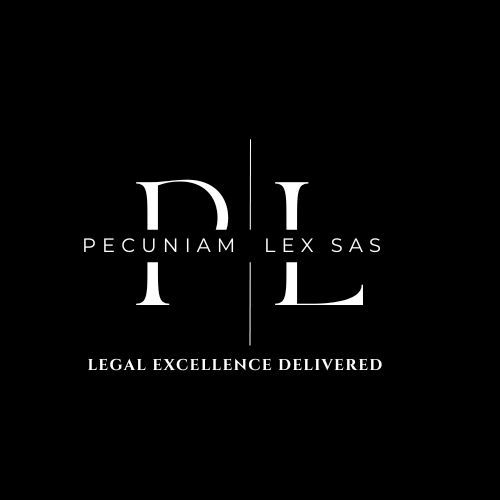The Transfer of Ownership for Shelf Companies: A Country-by-Country Guide
Phillips J. Diaz-Vicioso LL.M.
February 22, 2019
Allegory of Patience (1552) by Giorgio Vasari

Shelf companies, pre-registered entities with no prior activity, offer a quick pathway to business ownership and operation. The process for transferring ownership of these entities, however, can vary significantly from one country to another, reflecting differences in legal systems, regulatory frameworks, and business environments. This guide provides an overview of navigating the transfer of ownership for shelf companies, highlighting key considerations and differentiations across the Dominican Republic, Panama, El Salvador, and Colombia.
Dominican Republic
In the Dominican Republic, the transfer of ownership of a shelf company involves several key steps, including the endorsement of shares from the seller to the buyer, updating the company registry, and notifying the tax authorities. It's crucial to ensure that the company has no prior liabilities or obligations. The Dominican Republic's commercial registry requires official documentation of the transfer, often necessitating legal assistance to navigate the bureaucratic process efficiently.
Key Consideration: Ensure comprehensive due diligence to confirm the shelf company's clean history, given the Dominican Republic's strict regulations on corporate compliance and transparency.
Panama
Panama is well-known for its favorable business environment and the ease of setting up or transferring ownership of shelf companies. The process typically involves a change in the company’s officers and directors, updating the Public Registry, and a formal agreement of sale. Panama's flexible corporate laws allow for straightforward ownership transfers, but it's essential to comply with the due diligence requirements to prevent any issues related to international compliance, especially concerning the U.S. and European regulations.
Key Consideration: Pay attention to international compliance laws, as Panama's strategic position and business-friendly environment often necessitate adherence to broader international financial and anti-money laundering regulations.
El Salvador
Transferring ownership of a shelf company in El Salvador requires adherence to specific legal formalities, including the execution of a transfer agreement and the update of the National Registry of Natural Persons and Legal Entities. El Salvador also requires the publication of the transfer in a widely circulated newspaper as part of the transparency measures. Engaging with local legal experts can facilitate navigating these requirements, ensuring the transfer aligns with national laws.
Key Consideration: The public announcement requirement and the need for thorough documentation highlight the importance of transparency and legal adherence in El Salvador’s business practices.
Colombia
In Colombia, the transfer of ownership of shelf companies is governed by stringent regulations to ensure transparency and prevent fraud. The process involves legal documentation that evidences the sale and transfer of shares, registration of the new ownership with the Chamber of Commerce, and compliance with tax obligations through DIAN (the Colombian Tax Authority). Additionally, Colombia mandates the disclosure of the ultimate beneficial owners (UBO) to combat money laundering and financing of terrorism. This requires thorough due diligence and declarations to regulatory bodies to ensure the company’s compliance with local and international standards.
Key Consideration: The emphasis on identifying the ultimate beneficial owners and the comprehensive compliance checks underscore the need for meticulous preparation and transparency in the transfer process to meet Colombia's robust regulatory demands.
Navigating the Transfer Process: Common Steps and Best Practices
Despite the country-specific variations, several common steps and best practices can be identified for transferring ownership of shelf companies across these jurisdictions:
Due Diligence: Conduct thorough due diligence to ensure the shelf company has no hidden liabilities, obligations, or compliance issues. This includes checking the company's legal standing, financial history, and any potential claims or encumbrances.
Legal Documentation: Prepare and execute the necessary legal documents to formalize the transfer. This may include a sale agreement, share transfer forms, and resolutions to appoint new directors or officers.
Regulatory Compliance: Update the relevant national registries and comply with local tax authorities’ requirements. This step is crucial for maintaining the company's good standing and ensuring smooth operations post-transfer.
Professional Assistance: Engage with local legal and financial professionals who understand the intricacies of the country's corporate law and can navigate the transfer process efficiently. Their expertise can help mitigate risks and expedite the transfer.
Transparency and Disclosure: Adhere to the transparency requirements and disclose necessary information to regulatory bodies, especially concerning ultimate beneficial ownership and compliance with anti-money laundering regulations.
Conclusion
The transfer of ownership for shelf companies offers a unique set of opportunities and challenges in each country. Understanding the specific legal and regulatory landscape is crucial for a successful transfer. By following best practices and engaging with professional advisors, buyers can navigate these complexities effectively, ensuring a smooth transition and a solid foundation for their business ventures in the Dominican Republic, Panama, El Salvador, and Colombia












